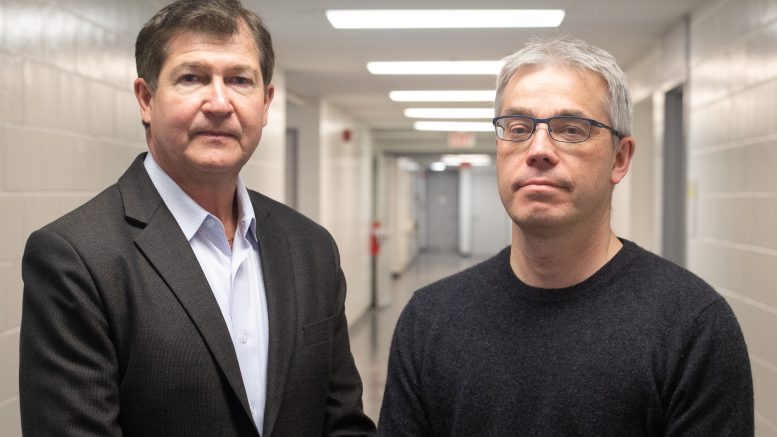In 2021, six U of M scientists were on Clarivate’s Highly Cited Researchers list. They were all from the Rady faculty of health sciences.
Clarivate’s Highly Cited Researchers list contains the names of scientists whose publications have been widely referenced over the past 10 years.
The papers that count toward this list are in the top one per cent of their fields of study for number of citations by other scientists, as per Clarivate’s Web of Science database. Only about one in 1,000 scientists in the world make the list.
George Zhanel, a U of M professor of medical microbiology and infectious diseases who was named on the list, said that worldwide interest in antibiotic resistance drives a large part of the readership.
Zhanel and his team specialize in synthesizing and testing antimicrobials, especially those which may be effective against drug-resistant pathogens.
Frank Schweizer, another U of M Highly Cited Researcher who is a professor of both chemistry and medical microbiology and infectious diseases specializes in developing new antibacterials.
Schweizer and Zhanel also develop models that aim to predict when antibiotic resistance occurs.
Both Schweizer and Zhanel have published hundreds of articles.
These articles are cited by a diverse audience which can include university or industry researchers, clinicians and even governments.
Some of their most cited articles are extensive reviews of specific antibiotics. Zhanel said that the exhaustive nature of these reviews deters some scientists from writing them.
“You’re putting in a bunch of authors together, and people are working together and there are countless figures and tables,” Zhanel said.
“I think the world doesn’t really want to write those themselves because they just take an extraordinary amount of time.”
However, Zhanel is committed to writing antibiotic reviews for interested individuals.
Each year, Zhanel and Schweizer select an antimicrobial that they feel could be promising in patient treatment.
These medications are not on the market and have not yet been approved by regulating government bodies, such as Health Canada or the U.S. Food and Drug Administration.
Over the summer, they hire a pharmacy student in their third or fourth year of university. The student must be familiar with various topics such as chemistry and microbiology.
That student then works with Zhanel, Schweizer and a team of eight to 10 researchers who each specialize in a different area.
The investigation takes a minimum of six months, and is then published in the scientific journal Drugs.
Since the antibiotics are still experimental, the published review is often the most extensive investigation on the product.
The reviews are then read and cited by any researcher interested in antibiotics.
A popular article of Zhanel and Schweizer’s was focused on reviewing hybrid antibiotics, which combine two types of antibiotics into one product.
Although Zhanel and Schweizer do not actively seek out articles that cite their research, they said that they are often pleased with the way other researchers have understood their work.
Schweizer said that sometimes, the way another scientist uses his articles makes him see his own work in a different light.
Zhanel said that he loves seeing when students in developing countries are interested in his articles.
Many universities may lack access to the online libraries that are available at the U of M, so students from those universities sometimes ask Zhanel for a PDF of one of his works.
These students often go on to cite Zhanel’s work in their own publications.
Zhanel also keeps up with specific researchers whose work he finds interesting. Every month or so, he searches through online journals to see what those researchers were currently working on.
Although there are aspects of Schweizer and Zhanel’s articles that might make them more likely to be widely cited, Zhanel said the high reference rates are not a predictable phenomenon.
“I don’t think anyone says, ‘I’m going to go with the goal of being the most cited researcher,’” Zhanel said. “I don’t think that really happens, and I don’t think that’s a goal.”
“You work really hard, you have a lot of fun along the way, you publish a bunch of papers, then all of a sudden something like this happens.”



